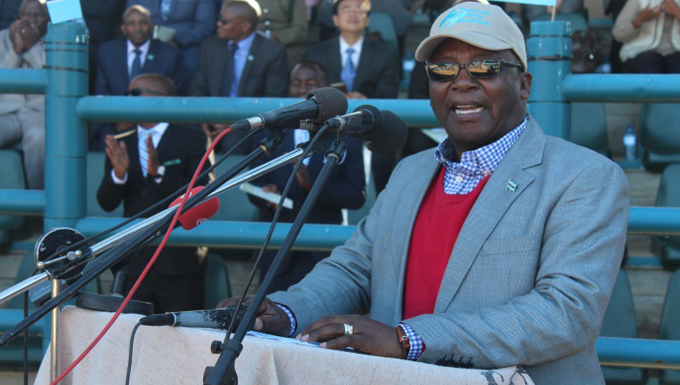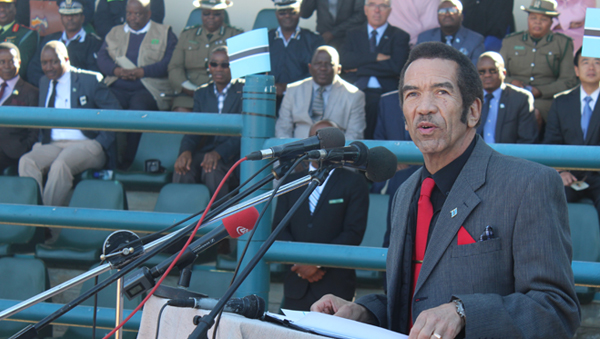-
Stakeholders Advised To Partner And Be More Active In Agriculture As A Whole
National Food Technology Research Centre (NFTRC) joined other private-, parastatal and government organisations in organising and exhibiting at the National Agricultural Show that was held at Gaborone Agricultural Showgrounds from the 14th-19th August 2017.
The event was celebrated under the theme Practising Smart Agriculture to Combat the Effects of Climate Change.
NFTRC Food Technology Head of Department-Principal Research Scientist, Dr Minah Mosele also represented the organisation as a Judge for Food Preservation Exhibits.
The Show Committee Chairman Mr Matshego B. Gobuamang reported that there were 573 crop exhibitors, of which 466 were ladies, and 39 youth; on the other hand there were 78 animal exhibitors, of which 11 were ladies and eight (8) youth.
In his official opening remarks, the President Lt. Gen. Dr Seretse Khama Ian Khama said he was humbled that the youth and women were starting to develop interest in Agriculture, because it is the future of the country as it seeks to achieve poverty eradication, job creation, import bill reduction, export promotion and food security.

For his welcome remarks, Minister of Agricultural Development and Food Security, Mr Patrick Ralotsia said that agricultural shows are important forums that give both government and the private sector the opportunity for benchmarking and discussing issues that affect the sector.
He called the private sector to be more active in agricultural shows, and to form a collective body that would formulate strategies to mitigate the challenges experienced by the sector.
Mr Ralotsia assured the President that as it was his last National Agricultural Show in which he was officiating in his capacity as Head of State, the Ministry together with the farming community and the private sector was promising him that they would continue to work hard to improve Agriculture and Food Security in the country.

On behalf of Botswana farmers Mr Christian Rudolf Lemcke gave one bull and ten Brahman Sturt-heifers to the President Lt. Gen. Dr Seretse Khama Ian Khama as farewell and thank you for always having the interest of famers at heart. He welcomed the President into the new world of farming and said that these will be a start-up kit for him.
In his first encounter with NFTRC, Omphi Farm Director, Mr Omphile Peloewetse, who is into horticultural farming at Glen Valley gardens, showed keen interest in NFTRC’s Fruit and Vegetable Processing training, saying that he strongly believed that it would be a solution to his post-harvest losses, and also will help him to expand his business into processed foods.

NFTRC’s stall visitors were fascinated by the organisation’s display of a variety of products processed from indigenous raw materials, and the majority agreed that indeed it was high time Batswana started producing, selling and eating their own foods.
Most visitors lamented the prices of machinery for producing the products, such as the ones used for canning, pressing oil, shelling morama; they were advised to work in groups and source funding as it could be much easier than trying to start the business alone. They expressed their wish for the government to uptake the technologies, and operate at a large scale.
Fortunately, the Weekly Bulletin shared these wishes from Batswana with the Minister Mr Ralotsia as he visited NFTRC stall.
Mr Ralotsia said that these technologies were for Batswana themselves to uptake, because the government wants to empower them and not to compete with them, therefore Batswana must venture into food businesses – the government has supporting structures in place such as Local Enterprise Authority (LEA) for providing business development services, Citizen Entrepreneurial Development Agency (CEDA) for funding, NFTRC for food research and trainings, and many more.
- mail@naftec.org
- Staff Webmail
- NFTRC Library
- Contact Us
